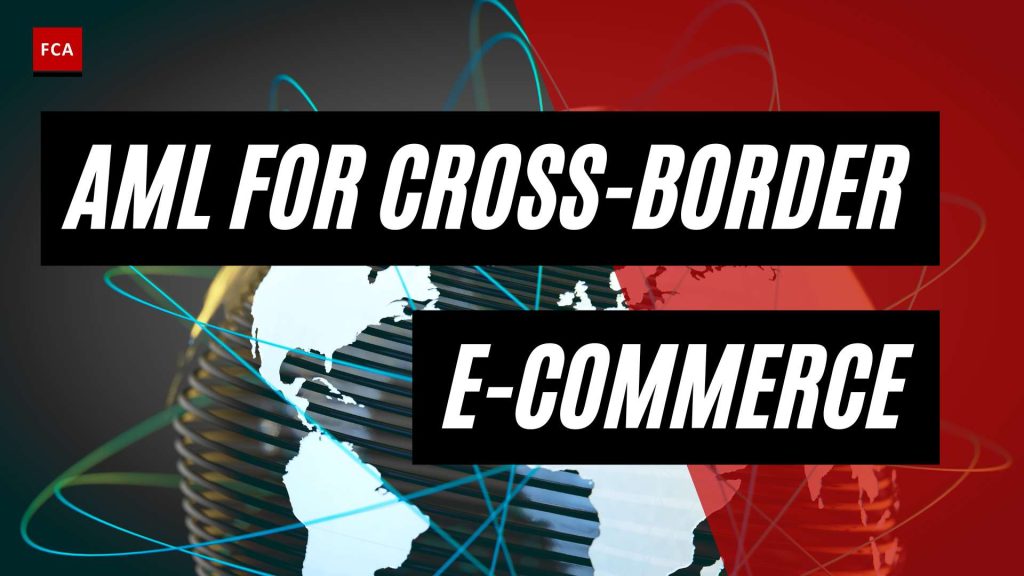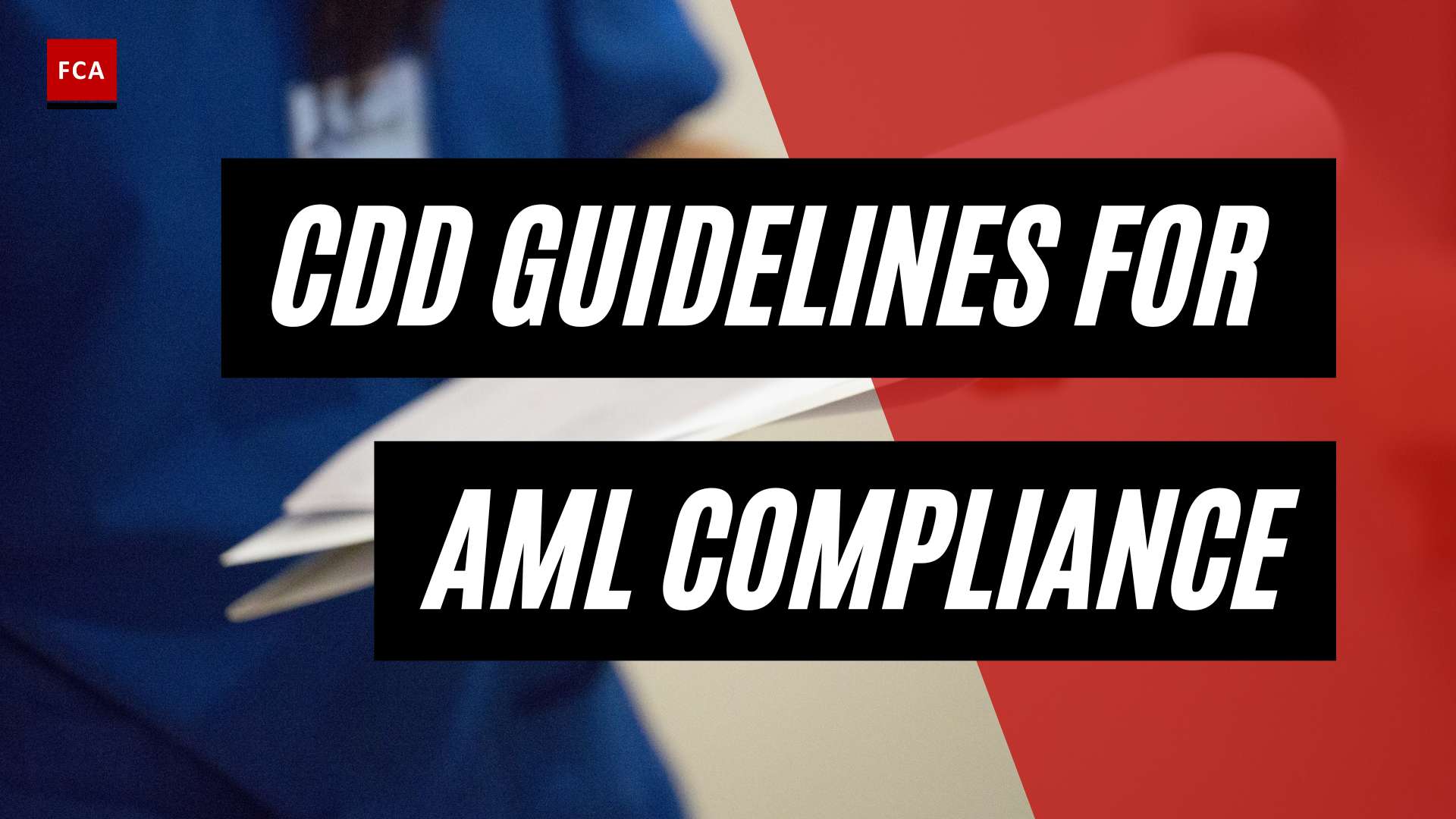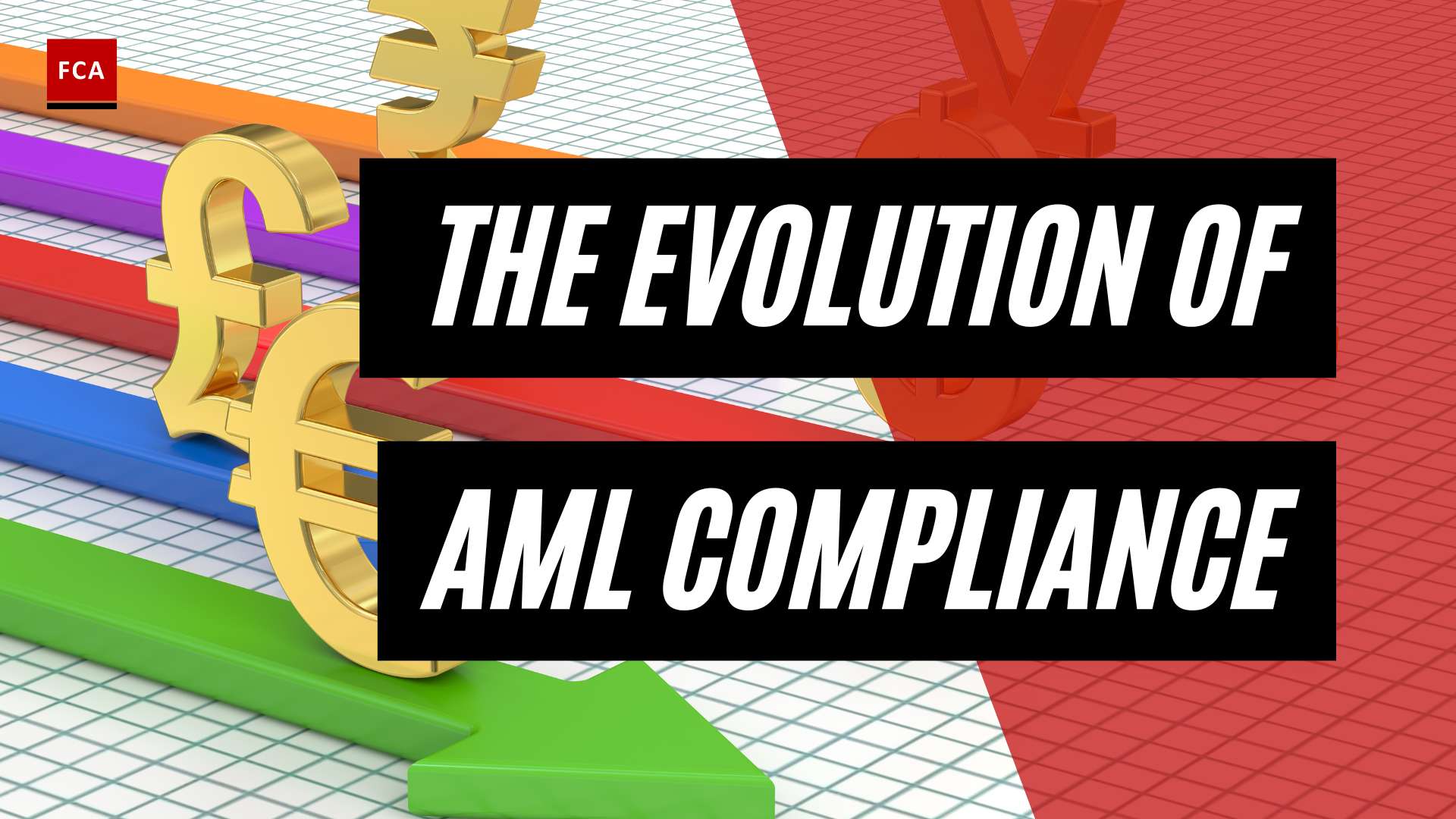AML in E-Commerce: An Overview
When it comes to cross-border e-commerce, ensuring compliance with Anti-Money Laundering (AML) regulations is of paramount importance. AML measures are designed to detect and prevent money laundering and terrorist financing activities. Understanding the fundamentals of AML and its application to cross-border e-commerce is crucial for professionals working in compliance, risk management, and anti-financial crime.
Understanding Anti-Money Laundering (AML)
Anti-Money Laundering (AML) refers to a set of laws, regulations, and procedures implemented to prevent the illegal process of disguising the origins of illicit funds. It involves identifying and mitigating the risks associated with money laundering and terrorist financing activities. AML regulations are in place to safeguard the integrity of financial systems and protect businesses and individuals from the harmful effects of financial crime.
Cross-Border E-Commerce and AML Regulations
Cross-border e-commerce transactions present unique challenges when it comes to AML compliance. The global nature of these transactions increases the risk of money laundering and terrorist financing. Recognizing this, regulatory bodies provide guidance to ensure businesses operating in the cross-border e-commerce space adhere to AML regulations.
The Investment Industry Regulatory Organization of Canada (IIROC) emphasizes the importance of AML checks for cross-border e-commerce in its compliance guidance documentation. This guidance aims to assist investment dealers and their trading activities in Canada’s debt and equity markets (IIROC).
Non-financial businesses engaged in cross-border e-commerce activities are also subject to AML regulations. These businesses are required to conduct customer due diligence, risk assessments, and transaction monitoring when dealing with international transactions. Compliance with AML regulations is crucial for non-financial businesses to prevent money laundering and terrorist financing activities and to maintain the integrity of the global financial system (Financial Crime Academy).
Understanding the fundamentals of AML and its application to cross-border e-commerce is essential for businesses and professionals operating in this space. In the following sections, we will explore the importance of AML checks, KYC procedures, risk-based approaches, compliance programs, consequences of non-compliance, and emerging trends in cross-border payments. Stay tuned to gain deeper insights into ensuring seamless cross-border e-commerce while complying with AML regulations.
Importance of AML Checks for Cross-Border E-Commerce
Ensuring compliance with Anti-Money Laundering (AML) regulations is of utmost importance in the realm of cross-border e-commerce. By conducting effective AML checks, businesses can safeguard themselves against illicit financial activities and protect the integrity of the global financial system.
Compliance Guidance from IIROC
The Investment Industry Regulatory Organization of Canada (IIROC), as the national self-regulatory organization overseeing investment dealers in Canada, emphasizes the significance of AML checks for cross-border e-commerce in its compliance guidance documentation. The IIROC recognizes the potential risks associated with international transactions and stresses the need for robust AML procedures to mitigate these risks (IIROC).
Cross-border e-commerce transactions present unique challenges due to the involvement of multiple jurisdictions, currencies, and regulatory frameworks. The guidance provided by the IIROC serves as a valuable resource for professionals working in compliance, risk management, and anti-financial crime, offering practical insights into implementing effective AML measures in the context of cross-border e-commerce.
AML Regulations for Non-Financial Businesses
AML regulations are not limited to financial institutions alone; they also extend to non-financial businesses engaged in cross-border e-commerce activities. Many countries require these businesses to conduct comprehensive customer due diligence, risk assessments, and transaction monitoring when dealing with international transactions.
By implementing AML checks, non-financial businesses can help combat money laundering and terrorist financing, safeguard their operations, and maintain the integrity of the global financial system. Adhering to AML regulations instills confidence among customers, partners, and stakeholders, demonstrating a commitment to ethical business practices.
To meet AML compliance requirements, non-financial businesses involved in cross-border e-commerce often need to implement robust Know Your Customer (KYC) procedures. These procedures involve verifying the identity of customers and conducting ongoing monitoring of transactions to detect suspicious activities. By adhering to KYC requirements, businesses can identify and mitigate potential risks associated with money laundering and other illicit financial activities.
It is important for non-financial businesses engaged in cross-border e-commerce to stay informed about the specific AML regulations applicable to their operations. Jurisdictions may have varying requirements, such as the EU’s Fifth Anti-Money Laundering Directive (5AMLD) and the U.S. Bank Secrecy Act (BSA), which necessitate the implementation of comprehensive AML compliance programs.
By prioritizing AML checks and compliance, businesses can protect themselves from potential penalties, reputational damage, and disruptions to their operations. A robust AML framework enables businesses to effectively identify and mitigate risks associated with money laundering and terrorist financing, ensuring the integrity and trustworthiness of cross-border e-commerce transactions.
KYC Procedures in Cross-Border E-Commerce
To ensure compliance with Anti-Money Laundering (AML) regulations and combat financial crimes, Know Your Customer (KYC) procedures play a crucial role in the realm of cross-border e-commerce. KYC checks are critical in verifying customer identities to prevent involvement in criminal activities like money laundering or fraud. Over time, KYC has evolved into a standardized compliance practice, particularly in the financial sector (LexisNexis).
Know Your Customer (KYC) Overview
KYC processes are not just regulatory obligations but also vital business practices that safeguard against financial fraud, build customer trust, and ensure compliance with legal standards. These processes involve gathering basic customer information, verifying documents, utilizing Electronic Identity Verification (eIDV), cross-referencing against sanction lists, understanding the nature of customer transactions, and ongoing monitoring to detect any potential risks promptly (LexisNexis).
The KYC check process begins with collecting essential details about customers, such as their name, address, date of birth, and contact information. These details help establish a baseline understanding of the customer’s identity. Subsequently, document verification plays a crucial role in confirming the authenticity of the provided information. This verification process may involve validating government-issued identification documents, proof of address, or other relevant documents.
Electronic Identity Verification (eIDV) solutions are often employed to streamline the KYC process. These solutions utilize advanced technology to validate customer identities by cross-referencing their information against trusted and reliable data sources. This helps to ensure the accuracy of the provided information and detect any discrepancies or potential fraudulent activities.
To enhance the efficiency and effectiveness of KYC procedures, businesses, especially financial institutions, should establish solid internal policies, utilize advanced technological solutions, and ensure staff are well-trained to manage risks associated with customer relationships effectively.
Verifying Customer Identities
The verification of customer identities is a critical aspect of KYC procedures in cross-border e-commerce. It involves assessing the authenticity and accuracy of the information provided by customers. This verification process helps to ensure that businesses have a clear understanding of who their customers are and confirms that they are not engaged in any illicit activities.
To verify customer identities, businesses employ various techniques and tools. One commonly used method is cross-referencing customer information against sanction lists, which contain names of individuals or entities associated with illegal activities. By comparing customer details with these lists, businesses can identify any potential matches and take appropriate actions to mitigate risks.
Additionally, ongoing monitoring of customer transactions is crucial in identifying suspicious activities or patterns that may indicate money laundering or other financial crimes. By implementing robust transaction monitoring systems, businesses can detect red flags and promptly report any suspicious activities to the relevant authorities.
KYC procedures are not only essential for compliance with AML regulations but also serve as a means to build trust with customers. By implementing effective KYC practices, businesses demonstrate their commitment to ensuring a secure and trustworthy environment for cross-border e-commerce transactions.
In the constantly evolving landscape of cross-border e-commerce, businesses must stay updated with the latest AML regulations and employ reliable KYC procedures to mitigate risks and maintain compliance.
Risk-Based Approach in Cross-Border E-Commerce
To effectively combat money laundering and terrorist financing risks in cross-border e-commerce, a risk-based approach is recommended. This approach allows non-financial businesses in the e-commerce industry to assess the level of risk associated with different customers, transactions, and countries. By understanding the risks involved, businesses can allocate resources more effectively to ensure compliance with Anti-Money Laundering (AML) regulations.
Assessing Risk in Cross-Border Transactions
The first step in implementing a risk-based approach is to assess the risk associated with cross-border transactions. This involves evaluating various factors such as the nature of the customer, the type and value of the transaction, and the country or jurisdiction involved. By analyzing these elements, businesses can gain insights into the potential money laundering and terrorist financing risks associated with each transaction.
To assess risk effectively, businesses can consider implementing AML screening measures for e-commerce transactions. These screenings involve the use of advanced technologies and databases to identify individuals or entities involved in illicit activities. By conducting thorough AML screenings, businesses can identify and mitigate potential risks associated with cross-border transactions.
Allocating Resources for AML Compliance
Once the risk associated with cross-border transactions has been assessed, businesses can allocate resources based on the identified level of risk. This includes dedicating personnel, technology, and financial resources to ensure effective AML compliance.
For higher-risk transactions or customers, additional due diligence measures may be necessary. This can involve enhanced customer identification procedures, enhanced transaction monitoring, and more stringent AML checks. By allocating more resources to high-risk areas, businesses can strengthen their AML compliance efforts and minimize the risk of facilitating money laundering activities through their platforms.
On the other hand, lower-risk transactions or customers may require less intensive AML checks. By adopting a risk-based approach, businesses can avoid unnecessary burdens on low-risk transactions while still maintaining compliance with AML regulations.
It’s important to note that implementing a risk-based approach requires continuous monitoring and periodic reassessment of risk levels. As the e-commerce landscape evolves and new risks emerge, businesses must adapt their resource allocation strategies to address the changing landscape effectively.
By adopting a risk-based approach in cross-border e-commerce, businesses can enhance their AML compliance efforts and reduce the likelihood of facilitating money laundering and terrorist financing activities. It allows for a targeted allocation of resources based on the identified level of risk, ensuring that businesses can effectively navigate the complexities of AML regulations in the e-commerce industry.
AML Compliance Programs for Cross-Border E-Commerce
To ensure the integrity of cross-border e-commerce transactions and mitigate the risk of money laundering and other financial crimes, businesses must establish robust AML compliance programs. These programs are designed to adhere to specific AML laws and regulations, enabling businesses to effectively detect, prevent, and report suspicious activities.
Specific AML Laws and Regulations
Non-financial businesses engaged in cross-border e-commerce are subject to various AML laws and regulations. Jurisdictions around the world have implemented specific requirements to combat money laundering and terrorist financing. For example, the EU’s Fifth Anti-Money Laundering Directive (5AMLD) and the U.S. Bank Secrecy Act (BSA) impose obligations on businesses to implement comprehensive AML compliance programs.
It is essential for businesses operating in cross-border e-commerce to stay up-to-date with the AML regulations applicable to their specific jurisdiction. These regulations may include requirements for customer due diligence, transaction monitoring, risk assessments, and reporting suspicious activities. By adhering to these regulations, businesses can contribute to a more secure and trustworthy cross-border e-commerce environment.
Establishing Robust AML Compliance Programs
To establish effective AML compliance programs for cross-border e-commerce, businesses should consider the following key elements:
-
Risk Assessment: Conducting a thorough risk assessment is crucial for identifying and understanding the specific money laundering and terrorist financing risks associated with cross-border e-commerce. This assessment should take into account factors such as customer profiles, transaction volumes, geographical locations, and industry-specific risk indicators.
-
Customer Due Diligence (CDD): Implementing robust KYC procedures is essential for verifying the identities of customers and detecting potential risks. This involves collecting relevant customer information, conducting identity verification checks, and ongoing monitoring of customer activities to identify any suspicious behavior or transactions. To learn more about KYC procedures, refer to our article on KYC for e-commerce businesses.
-
Transaction Monitoring: Implementing effective transaction monitoring systems allows businesses to detect and report any unusual or suspicious activities. This involves analyzing transactional data, applying predefined rules and algorithms, and conducting periodic reviews to identify potential red flags. AML screening software specifically designed for e-commerce transactions can streamline this process. Learn more about AML screening in our article on AML screening for e-commerce transactions.
-
Internal Controls and Reporting: Establishing internal controls and procedures helps ensure compliance with AML regulations. This includes assigning responsibilities for AML compliance, providing regular training to employees, maintaining accurate records, and establishing protocols for reporting suspicious activities to the relevant authorities. AML software designed for e-commerce platforms can also assist in automating compliance processes. For more information, refer to our article on AML software for e-commerce platforms.
By implementing and maintaining robust AML compliance programs, businesses involved in cross-border e-commerce can demonstrate their commitment to preventing money laundering and safeguarding the integrity of financial systems. These programs not only help businesses comply with regulatory requirements but also contribute to maintaining trust and confidence among customers, partners, and stakeholders.
The consequences of non-compliance with AML regulations in cross-border e-commerce can be severe, including penalties and reputational damage. Therefore, it is of utmost importance for businesses to prioritize the establishment of effective AML compliance programs and regularly assess and update them to adapt to evolving risks and regulatory requirements.
Consequences of Non-Compliance
Ensuring compliance with Anti-Money Laundering (AML) regulations is of utmost importance for businesses involved in cross-border e-commerce. Failure to comply with these regulations can have severe consequences, both in terms of penalties and reputational damage. It is essential for businesses to understand the potential impact of non-compliance on their operations.
Penalties and Reputational Damage
Non-compliance with AML regulations can lead to significant financial penalties. AML fines have increased by 50% in recent years, highlighting the emphasis placed on preventing breaches in AML regulations to avoid financial penalties (LexisNexis). These fines can be substantial and have the potential to significantly impact a business’s financial stability.
Moreover, non-compliance can result in reputational damage that can undermine a business’s standing in the market. In today’s digital age, news of non-compliance can spread quickly, leading to a loss of trust and credibility among customers, partners, and stakeholders. Rebuilding a tarnished reputation can be a challenging and time-consuming process.
To mitigate these risks, businesses engaged in cross-border e-commerce must establish effective AML compliance programs and conduct regular risk assessments. By adhering to regulatory requirements and implementing robust internal controls, businesses can minimize the likelihood of non-compliance and the associated penalties and reputational damage.
Impact on Business Operations
Non-compliance with AML regulations can have far-reaching implications for business operations. Regulatory authorities may impose various sanctions, such as restrictions on conducting certain types of transactions or even suspending business activities. These measures can disrupt operations, leading to financial losses and a loss of market share.
Additionally, non-compliance can result in increased scrutiny from regulatory bodies, requiring businesses to allocate additional resources to address compliance issues. This diversion of resources can impact the efficiency and profitability of the business, potentially hindering its ability to grow and expand in the market.
By prioritizing AML compliance and integrating it into their business operations, companies engaged in cross-border e-commerce can mitigate the risk of non-compliance. Implementing robust AML checks, conducting thorough due diligence, and providing ongoing AML training to staff can help ensure adherence to regulatory requirements and prevent disruptions to business operations.
The consequences of non-compliance with AML regulations highlight the importance of establishing effective AML compliance programs and conducting regular risk assessments. Businesses engaged in cross-border e-commerce must recognize the potential penalties and reputational damage associated with non-compliance and take proactive steps to safeguard their operations and maintain regulatory compliance.
Emerging Trends in Cross-Border Payments
As the world becomes increasingly interconnected, cross-border payments play a vital role in facilitating international trade and e-commerce. However, there are challenges associated with these transactions, including friction and inefficiencies. To overcome these hurdles, the industry is witnessing emerging trends and innovative solutions to enhance the cross-border payment process.
Friction in Cross-Border Payments
Friction in cross-border payments refers to the obstacles and inefficiencies that can arise during the payment process. These obstacles can include delays, high costs, lack of transparency, and complex regulatory requirements. The friction can be attributed to factors such as varying currencies, multiple intermediaries, and different regulatory frameworks.
To address this issue, Anti-Money Laundering (AML) transaction monitoring can play a crucial role. By implementing robust AML compliance measures, financial institutions and businesses can ensure rapid, trackable, and predictable payments. This enhances efficiency, reduces delays, and improves the overall customer experience in the market. AML transaction monitoring helps identify and mitigate risks associated with cross-border payments, making the process smoother and more reliable (Sanction Scanner).
Innovations in Cross-Border Payment Processes
To meet evolving consumer expectations, the cross-border payment industry is witnessing innovations aimed at creating faster, more intuitive payment experiences. Digital payments, instant payment systems, and mobile wallets have transformed consumer expectations, and these expectations extend to cross-border payments as well.
Stablecoins and blockchain technology are emerging as potential solutions to address the challenges of cross-border payments. Stablecoins are cryptocurrencies designed to reduce volatility by tying their value to external references like fiat currency. These stablecoins aim to provide a more stable and predictable means of conducting cross-border transactions. On the other hand, blockchain technology has the potential to revolutionize cross-border payments by offering low-cost, real-time, and secure international money transfers. Blockchain can address issues with correspondent bank transfers and streamline the payment process.
These innovative solutions aim to make cross-border payments smoother, more secure, and efficient, aligning with the changing expectations of consumers in the digital era (Sanction Scanner).
As the demand for seamless and rapid payment experiences grows, the industry continues to explore new ways to enhance cross-border payments. By adopting emerging trends and leveraging innovative technologies, businesses can overcome the friction associated with cross-border payments and meet the evolving needs of customers. It is important to stay informed about these trends and embrace the opportunities they present to streamline the cross-border payment process.
Regulatory Impact on Cross-Border Payments and E-Commerce
As cross-border e-commerce continues to thrive, it is essential to consider the regulatory impact on these transactions. Two key areas that significantly affect cross-border payments and e-commerce are Anti-Money Laundering (AML) and Counter-Terrorist Financing (CTF) regulations, along with tax regulations and customer mandates.
Anti-Money Laundering and Counter-Terrorist Financing Regulations
AML and CTF regulations play a crucial role in safeguarding the integrity of cross-border payments and e-commerce transactions. Governments and regulatory bodies have implemented these regulations to prevent money laundering, terrorist financing, and other illicit activities.
Compliance with AML and CTF regulations requires businesses to implement robust AML checks and due diligence procedures. In many countries, including Canada, AML compliance guidance from organizations like the Investment Industry Regulatory Organization of Canada (IIROC) emphasizes the importance of conducting thorough AML checks in cross-border e-commerce (IIROC). Non-financial businesses engaged in cross-border e-commerce are also subject to AML regulations, requiring them to perform customer due diligence, risk assessments, and transaction monitoring (Financial Crime Academy).
To ensure compliance with AML and CTF regulations, businesses engaged in cross-border e-commerce must establish AML compliance programs, conduct ongoing risk assessments, and employ AML screening tools for detecting suspicious activities. Furthermore, training staff on AML procedures and maintaining comprehensive records are essential components of effective AML compliance.
Tax Regulations and Customer Mandates
Tax regulations have a significant impact on cross-border payments and e-commerce. Governments are increasingly placing responsibility on e-commerce companies to ensure accurate tax charging, collection, and payment. For example, initiatives like the European Union’s ‘VAT in the Digital Age’ and tax rules implemented in countries such as Singapore and the Philippines are reshaping the tax landscape for cross-border e-commerce (The Paypers).
Additionally, customer mandates play a crucial role in cross-border payments and e-commerce. Mandates such as permissions for debiting payment methods, recurring transactions, or requirements for strong customer authentication impact the way transactions are conducted. For instance, India’s ‘Processing of e-mandates for recurring online transactions’ mandate and the UK’s PSD2’s Strong Customer Authentication (SCA) are examples of customer mandates that influence cross-border payments and e-commerce (The Paypers).
Businesses engaged in cross-border e-commerce must closely monitor and comply with tax regulations and customer mandates relevant to their operations. Ensuring accurate tax calculations, proper documentation, and adherence to customer authorization requirements are vital for maintaining compliance in cross-border transactions.
By understanding and adhering to AML and CTF regulations, tax regulations, and customer mandates, businesses can navigate the regulatory landscape of cross-border payments and e-commerce more effectively. Implementing robust compliance programs, conducting regular risk assessments, and staying updated with evolving regulations are essential for maintaining regulatory compliance and fostering trust in cross-border transactions.








